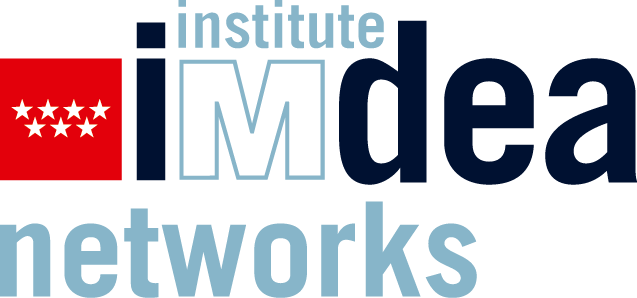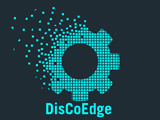Grupos de investigación
Ofertas de empleo
Actualmente no hay ofertas de trabajo disponibles.
Socios y colaboradores

IMDEA Networks Institute
Visitar página web arrow_right_alt


Las redes móviles actuales están pobladas por todo tipo de dispositivos que ofrecen — además de gran cantidad de capacidades de detección e innumerables servicios para el usuario — una gran capacidad de procesamiento, almacenamiento a bajo coste y una amplia gama de recursos de computación y redes. Muchas veces los recursos de computación disponibles en los dispositivos finales y en otros elementos de red siguen siendo muy poco utilizados. Este uso ineficiente de los recursos es una consecuencia del modelo de computación en la nube dominante, según el cual la gran mayoría de servicios y aplicaciones en línea descargan tareas computacionalmente costosas a infraestructuras de servicios en la nube centralizadas y a gran escala, como Amazon EC2, incluso cuando tienen recursos computacionales disponibles en su proximidad.
Como alternativa al modelo de computación en la nube altamente centralizado, recientemente se ha propuesto el paradigma de la «computación en la niebla» (fog computing). Este nuevo paradigma se propone aprovechar un ecosistema de recursos informáticos distribuidos por todos los dispositivos de comunicación en el borde de la red (ej. estaciones base y CPEs), incluso teniendo en cuenta a los dispositivos del usuario final (ej. teléfonos inteligentes) y a dispositivos con recursos limitados (ej. IoT). Como resultado, la computación en la niebla tiene como objetivo complementar el modelo de computación en la nube existente mediante el aprovechamiento de recursos diversos y más ricos que de lo contrario son infrautilizados. La computación en la niebla permitirá casos de uso hasta ahora no vistos, aplicaciones futuras y oportunidades tecnológicas que el modelo de computación en la nube no puede proporcionar.
Este proyecto analizará oportunidades, tecnologías, estrategias de marketing y políticas para avanzar en el paradigma de la computación en la niebla. Exploraremos cuáles son los desafíos para que los dispositivos, aplicaciones y dispositivos de acceso de los usuarios finales puedan compartir y acceder de forma dinámica y segura a cualquier recurso computacional (almacenamiento, redes, sensores y potencia de cómputo) disponible en sus proximidades (ej. islas WiFi, implementaciones de redes domésticas, dispositivos que forman una nube personal o comunitaria e incluso redes de telefonía móvil 5G y más allá). Sin embargo, en este proyecto también exploraremos los desafíos económicos y sociológicos a afrontar para garantizar a los usuarios fiabilidad, imparcialidad y seguridad al acceder a los recursos de servicios de terceros. Estudiaremos y consideraremos los escenarios en los que todos los dispositivos son fiables (ej. la “nube familiar”) y otros en los que puede haber adversarios potenciales, usuarios independientes y agentes maliciosos. Con este propósito, el proyecto analizará la viabilidad y la efectividad de modelos basados en incentivos y de mecanismos de reputación para promover la participación del usuario y maximizar la equidad.
En este proyecto, analizaremos la necesidad de un tercero que hagas las funciones de autoridad y habilitador, a saber, un Proveedor de servicios de Internet (ISP). De hecho, el ISP no solo puede ofrecer una gran infraestructura ubicada en el borde de la red (incluidos CPE y estaciones base), sino que también tiene una posición de poder para garantizar la equidad y brindar confianza. Para hacer realidad esta visión y para que sea una solución beneficiosa para todos los interesados, el sistema debe cumplir una serie de objetivos de diseño: 1) debe admitir la configuración e instalación de grupos de recursos, 2) debe transmitirse a algoritmos distribuidos y ligeros para el control de la conectividad local (ej. en esquemas de comunicación D2D y protocolos de IoT oportunistas y sensibles al contexto) y 3) debe ejecutar mecanismos bien diseñados y seguros para acceder al grupo de recursos. Todo el sistema debe ser compatible con la red, teniendo en cuenta la naturaleza de la tecnología de acceso y las posibles ineficiencias encontradas en el último tramo de la red, y en las tecnologías inalámbricas mejoradas.
Proyecto TIN2017-88749-R financiado por:

Actualmente no hay ofertas de trabajo disponibles.
